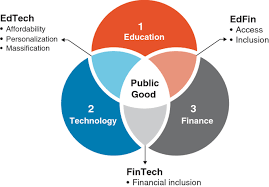Training course on The Role of the Private Sector in Development: Fostering Partnerships for Growth
Training Course on The Role of the Private Sector in Development: Fostering Partnerships for Growth will equip participants with the necessary tools and insights to effectively engage in these partnerships, ensuring that development efforts are impactful and aligned with global best practices.
Skills Covered

Course Overview
Training Course on The Role of the Private Sector in Development: Fostering Partnerships for Growth
The private sector plays a crucial role in driving economic development and fostering sustainable growth. As economies around the world face unprecedented challenges, the collaboration between public institutions and private enterprises has become essential. By leveraging innovation, resources, and expertise, the private sector can enhance productivity, create jobs, and stimulate investment. This partnership not only strengthens economic resilience but also addresses social challenges, making it vital for policymakers and business leaders to work together towards common goals. The integration of private sector strategies into development agendas is key to unlocking new opportunities and promoting inclusive growth.
In this context, the focus on fostering partnerships between government entities and private organizations is paramount. Such collaborations can lead to improved infrastructure, enhanced service delivery, and increased access to markets, particularly for marginalized communities. By adopting a holistic approach to development that includes the private sector, stakeholders can drive sustainable change that benefits all. Training Course on The Role of the Private Sector in Development: Fostering Partnerships for Growth will equip participants with the necessary tools and insights to effectively engage in these partnerships, ensuring that development efforts are impactful and aligned with global best practices.
Course Objectives
- Understand the significance of private sector engagement in development.
- Identify key drivers of economic growth through partnerships.
- Analyze successful case studies of public-private collaborations.
- Master strategies for leveraging private sector resources for development.
- Evaluate the impact of private sector initiatives on local communities.
- Address challenges in fostering effective partnerships.
- Develop skills for negotiating and managing partnerships.
- Explore innovative financing models for development projects.
- Assess the role of corporate social responsibility (CSR) in sustainable growth.
- Communicate effectively with stakeholders in the development sector.
- Utilize data-driven approaches to measure partnership outcomes.
- Identify future trends in private sector involvement in development.
- Foster an ethical approach to partnerships for growth.
Target Audience
- Development practitioners
- Business leaders
- Policymakers
- Non-profit organizations
- Graduate students in development studies
- Economists
- Community organizers
- Corporate social responsibility (CSR) professionals
Course Duration: 5 Days
Course Modules
Module 1: Introduction to Private Sector Development
- Overview of private sector roles in development.
- Key concepts and terminology.
- Historical context of public-private partnerships.
- Benefits of collaboration for economic growth.
- Case studies of successful partnerships.
Module 2: Economic Growth Drivers
- Analysis of private sector contributions to GDP.
- Role of innovation in driving growth.
- Impact of job creation on local economies.
- Investment strategies for sustainable development.
- Measuring economic impact through data.
Module 3: Building Effective Partnerships
- Steps to establish successful collaborations.
- Key stakeholders in partnership development.
- Aligning goals and objectives across sectors.
- Managing expectations and responsibilities.
- Tools for effective communication.
Module 4: Financing Development Projects
- Overview of funding sources for partnerships.
- Innovative financing mechanisms (e.g., impact investing).
- Risk management in financing.
- Developing sustainable business models.
- Evaluating financial performance.
Module 5: Corporate Social Responsibility (CSR)
- Understanding CSR and its importance.
- Integrating CSR into business strategies.
- Measuring the impact of CSR initiatives.
- Case studies of effective CSR practices.
- Engaging stakeholders through CSR.
Module 6: Monitoring and Evaluation
- Key performance indicators for partnerships.
- Data collection and analysis methods.
- Tools for evaluating partnership effectiveness.
- Reporting results to stakeholders.
- Continuous improvement through feedback loops.
Module 7: Challenges in Public-Private Partnerships
- Identifying common barriers to collaboration.
- Addressing power imbalances and conflicts.
- Strategies for overcoming resistance.
- Learning from failures and successes.
- Best practices for conflict resolution.
Module 8: Future Trends in Private Sector Development
- Emerging trends in partnerships for growth.
- Role of technology in enhancing collaboration.
- Adapting to global challenges (e.g., climate change).
- Innovations in service delivery through partnerships.
- Preparing for the future of private sector engagement.
Training Methodology
- Interactive Workshops: Facilitated discussions, group exercises, and problem-solving activities.
- Case Studies: Real-world examples to illustrate successful community-based surveillance practices.
- Role-Playing and Simulations: Practice engaging communities in surveillance activities.
- Expert Presentations: Insights from experienced public health professionals and community leaders.
- Group Projects: Collaborative development of community surveillance plans.
- Action Planning: Development of personalized action plans for implementing community-based surveillance.
- Digital Tools and Resources: Utilization of online platforms for collaboration and learning.
- Peer-to-Peer Learning: Sharing experiences and insights on community engagement.
- Post-Training Support: Access to online forums, mentorship, and continued learning resources.
Register as a group from 3 participants for a Discount
Send us an email: info@datastatresearch.org or call +254724527104
Certification
Upon successful completion of this training, participants will be issued with a globally recognized certificate
Tailor-Made Course
We also offer tailor-made courses based on your needs.
Key Notes
- Participants must be conversant in English.
- Upon completion of training, participants will receive an Authorized Training Certificate.
- The course duration is flexible and can be modified to fit any number of days.
- Course fee includes facilitation, training materials, 2 coffee breaks, buffet lunch, and a Certificate upon successful completion.
- One-year post-training support, consultation, and coaching provided after the course.
- Payment should be made at least a week before the training commencement to DATASTAT CONSULTANCY LTD account, as indicated in the invoice, to enable better preparation.